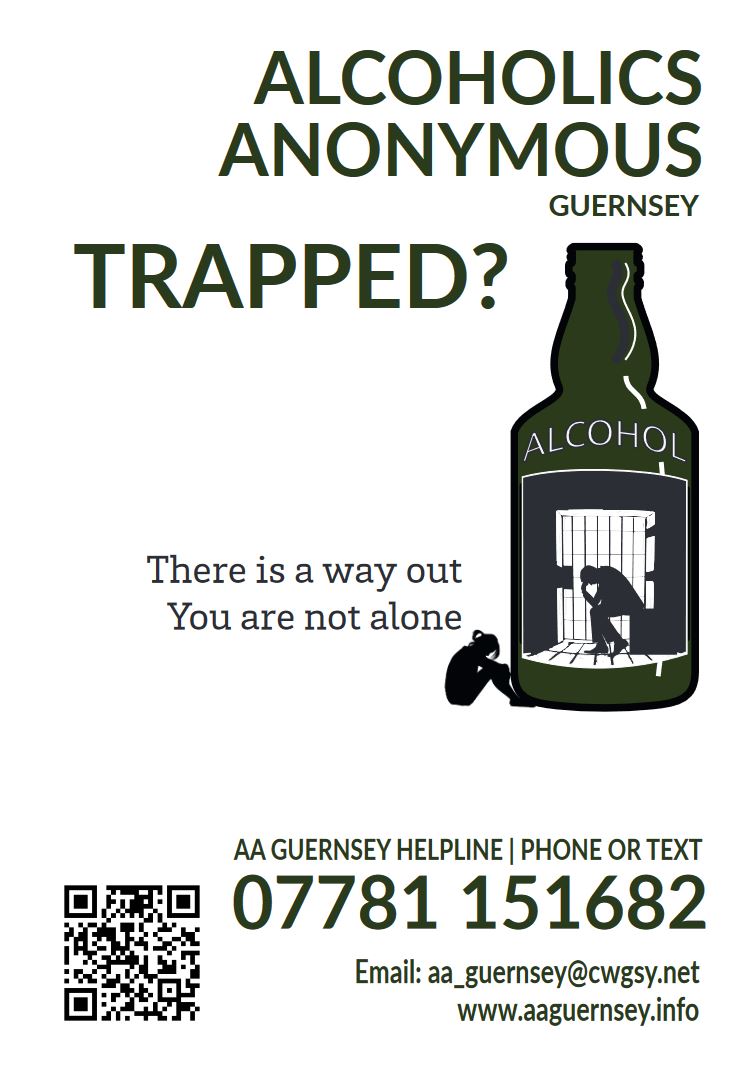John's story
[John's story appeared as an article in the Guernsey Press on 20 July 2015, marking the 80th anniversary of Alcoholics Anonymous]
'Alcoholics Anonymous saved my life'
A man has said he would have died without the support of Alcoholics Anonymous, which recently celebrated its 80th anniversary.
John, 71, has not had an alcoholic drink for 18 years.
'If it hadn't been for AA, I wouldn't be here. It saved my life, and going to that first meeting was the best decision I ever made.'
I would have died without the support of Alcoholics Anonymous.
'Alcoholism does not just affect the person suffering with the disease,' he said.
'It has an impact on everyone around you—be that partners, friends or family.'
'There's no rhyme or reason as to why someone becomes an alcoholic. It can affect anyone—black, white, young, old, male or female.'
John said he started drinking from an early age and that he used alcohol as a coping mechanism.
'I discovered that alcohol could block unpleasant emotions or feelings, and over time I drank more and more on a regular basis.
'Eventually, I was drinking before lunchtime, and at my worst I was swigging vodka straight from the bottle before 6am.
'Near the end, it wasn't uncommon for me to drink up to a litre of neat spirits a day in addition to wine.'
You get to the stage where you plan your life around the next drink.
John said he was living with 'a permanent hangover', but that not drinking made him feel even worse.
'You get to the stage where you just need it, and you plan your life around the next drink,' he said.
'It's hard for people to understand but holidays, for example, are really daunting for alcoholics because you can't guarantee when the next drink will be in your hand.'
It was in the early 90s that John thought he might have a problem. Still, he was unable to admit this to himself or those around him.
'I became very depressed and amazingly, since I stopped drinking that depression has completely gone.'
He said that with most alcoholics, a 'rock bottom moment' motivates them to reach out to AA.
It's usually a bad car accident, getting in trouble with the police or having a partner leave that makes you realise you need to take control of your situation,' he said.
'For me, it wasn't one rock bottom moment. It was that I had been bumping along the bottom for years and I knew that I would die if things didn't change.
'I think a common misconception is that you can go to a treatment centre for a month or attend a few meetings and be cured, but that simply isn't the case.
'Once an alcoholic, always an alcoholic—but you can choose to not let it define your life.
'In AA, we always refer to ourselves as recovering, not recovered.
Being an alcoholic is not fun. It's important to know that you are not alone, even though it might feel that way at the moment.
'Attending regular meetings is absolutely essential. The peer support you receive is incredible, and only the people at those meetings will understand your struggle.'
Using the term 'alcoholic' lightly or in jest misunderstands a still very 'hidden' disease, he explained.
There is a solution, in Alcoholics Anonymous.
'Being an alcoholic is not fun. We drink to feel normal and to just get through the day. There are so many people out there who have issues but just don't know how to start facing them.
'The first step is just to admit to yourself that you have a problem, because it really is the disease of denial.
'The second step is acceptance and facing the fact that you can never drink again.
'As an alcoholic, there is no gentlemanly drinking at the weekend. It has to stop completely.
'That takes courage.'
John urged people who think they might be suffering with alcoholism to attend a local AA meeting and see how things go from there.
'Nothing shocks at those meetings, there are people aged 20 and aged 70, and everyone's story is different. It's important to know that you are not alone, even though it might feel that way at the moment.'

